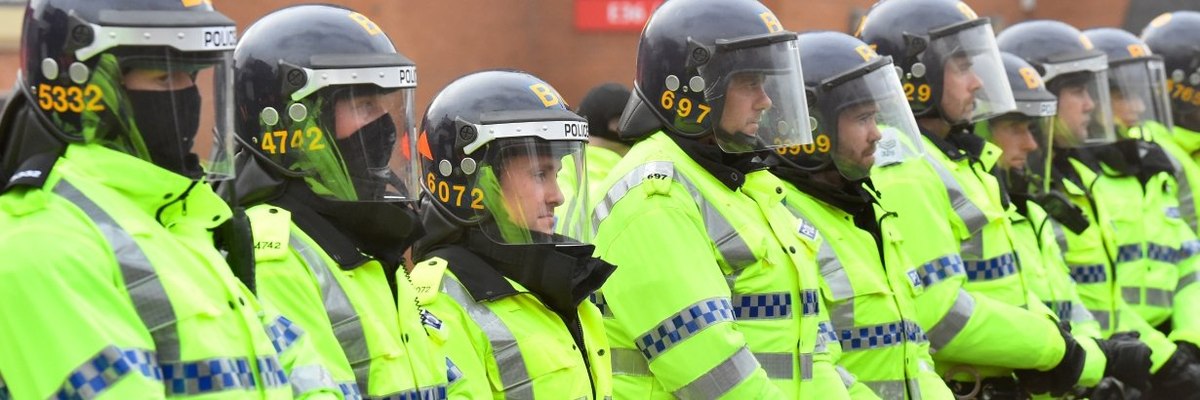The new Police, Crime, Sentencing & Courts Bill proposes to amend numerous elements of current police practice and powers, including expansions to the powers police have over public protests.
At the moment, the police can impose specific measures on the routes of marches, and if they want to restrict a protest, they have to demonstrate that it may result in "serious public disorder, serious damage to property or serious disruption to the life of the community".
The police say that the balance between the rights of protestors and the rights of the wider community can tip too readily in favour of protestors if police don’t accurately gauge the level of disruption likely to be caused by a protest, and have expressed concerns that new tactics by protestors produce a disproportionate level of disruption. But Labour, Liberal Democrats and the Green party have opposed the bill, saying certain elements are “outrageous”, “oppressive” and a threat to the right to protest.
But do Britons agree that the police need to get tougher on protests?
In terms of current policing of public demonstrations, Britons are split, with 35% saying it is not strict enough, 31% saying about right, but only 16% saying too strict. There are clear partisan differences, with 2019 Conservative voters much more likely than their Labour counterparts to say policing is not strict enough (by 57% to 15%) and less likely to say too strict (by 5% to 31%). In terms of age, younger people (18-24 year olds) are most likely to say policing is too strict (31%), and least likely to say not strict enough (10%).
When considering the impact of public protests, three-quarters (74%) of the public say they have never had their day-to-day life disrupted by a public protest. A further 10% say they have been disrupted just once, 8% two to five times, and less than 2% have been put out more than five times. Those who have been affected at least once are more likely to say policing of protests is not strict enough (by 52% to 31%), and those who have never been affected by public protests are slightly more likely to say policing of them is too strict (by 18% to 12%).
The majority of the public support the new tougher measures regarding protests in the Police, Crime, Sentencing & Courts Bill
The protest-related elements of the bill remain hotly contested in parliament, with the House of Lords voting down several measures, including criminalising ‘locking on’ (protestors attaching themselves to a building, structure or road) and allowing police to set noise limits on protests.
The Lords’ decision is at odds with the wider public view. Close to two thirds (64%) support making ‘locking on’ a criminal offence, the highest of the measures we asked about.
There is also strong support for giving police the power to remove those restricting vehicle access to parliament (62%), as well as senior police officers being able to set noise limits on a protest (53%) and extending the current powers to set start and end times (52%).
Conservative voters are driving the support, with at least three quarters supporting each proposed policy, while Labour voters show more opposition. Notably, a majority of Labour voters oppose setting start and end times (54%) and noise limits (also 54%) on protests.
Across the board, older people are more supportive of the new tougher measures than their younger peers. There are particularly large generational differences when it comes to giving senior officers the power to set ‘noise limits’ (75% of those aged 65 and over vs 24% of 18-24 year olds) and start and end times for protests (74% vs 17%). Women are also more likely than men to support setting a noise limit on a protest, by 57% to 49%.
See full results here











